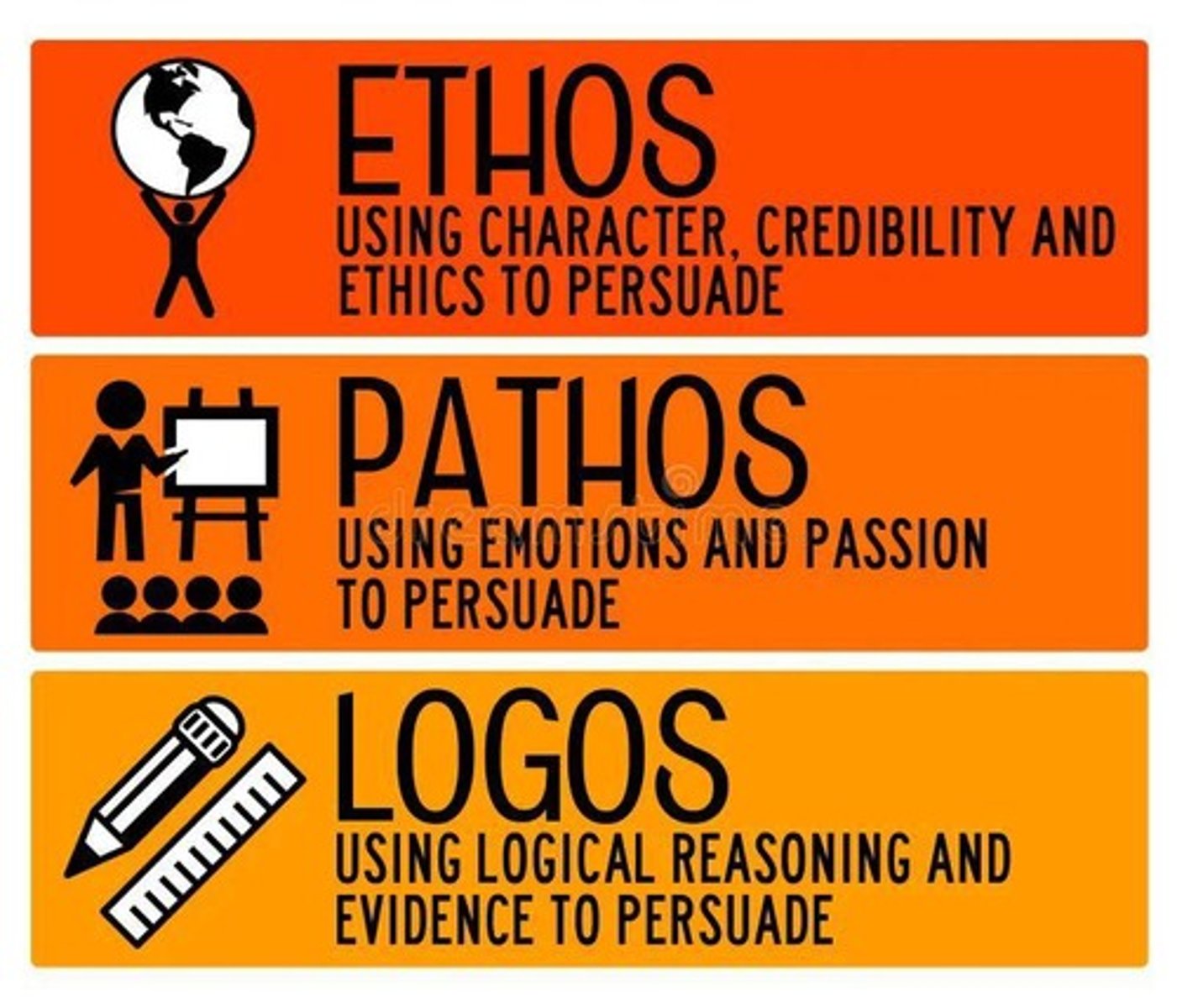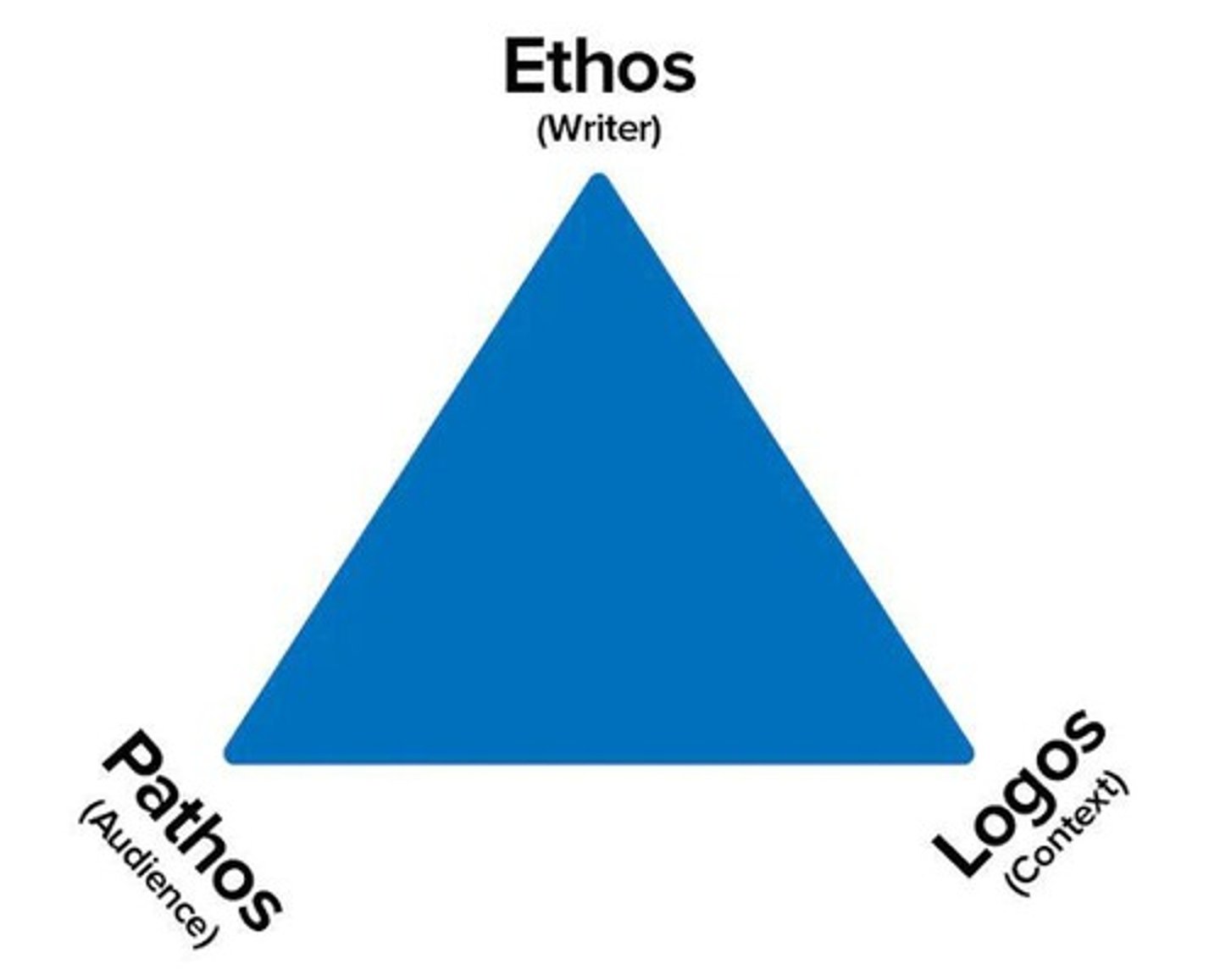Understanding Aristotle's Rhetorical Triangle
1/16
There's no tags or description
Looks like no tags are added yet.
Name | Mastery | Learn | Test | Matching | Spaced | Call with Kai |
|---|
No analytics yet
Send a link to your students to track their progress
17 Terms
Aristotle
Philosopher who lived from 384 B.C. to 322 B.C.
Rhetoric
The art of effective or persuasive speaking or writing.
Ethos
Ethical Appeal that conveys trustworthiness and relatability to the audience.

Pathos
Emotional Appeal that makes the audience feel something.

Logos
Logical Appeal that involves information, statistics, and facts to support claims.

Ethos Tips
1. Research and become an 'expert' on your topic 2. Have a personal connection to your topic 3. Use personal anecdotes 4. Speak professionally 5. Be confident.
Pathos Tips
1. Word Choice: Choose emotional language 2. Add humor to make your audience laugh 3. Use visual aides that evoke emotion 4. Use emotional tone 5. Use metaphors and analogies.
Logos Tips
1. Word Choice: Choose words your audience will understand 2. Support your claims with evidence or reasoning 3. Use statistics and facts 4. Use 'If, then' statements 5. Use inductive and deductive reasoning.
Ethos Definition
Establishes credibility and answers the question: Why should you be trusted to speak on this topic?
Pathos Definition
Used frequently in PSAs to evoke emotional responses.
Logos Definition
Requires a coherent message supported by evidence.
Ethos Greek Meaning
Means 'Character' in Greek.
Pathos Greek Meaning
Means 'Suffering' or 'Experience' in Greek.
Logos Greek Meaning
Derived from 'Logic'.
Ethos Characteristics
Conveys trustworthiness and relatability.
Pathos Characteristics
Evokes feelings in the audience.
Logos Characteristics
Involves coherent messages and evidence to support claims.